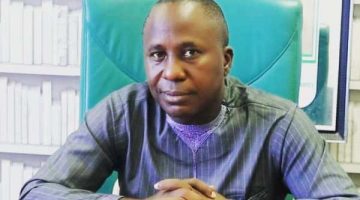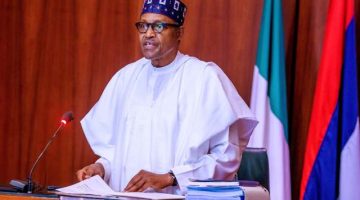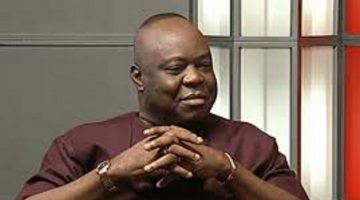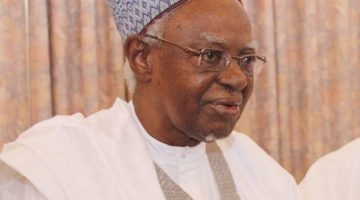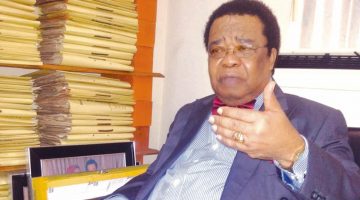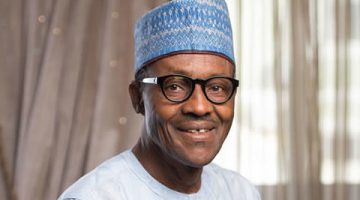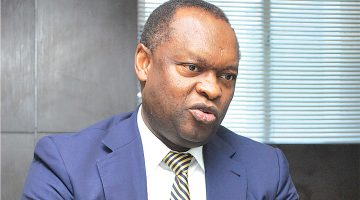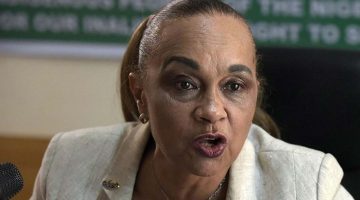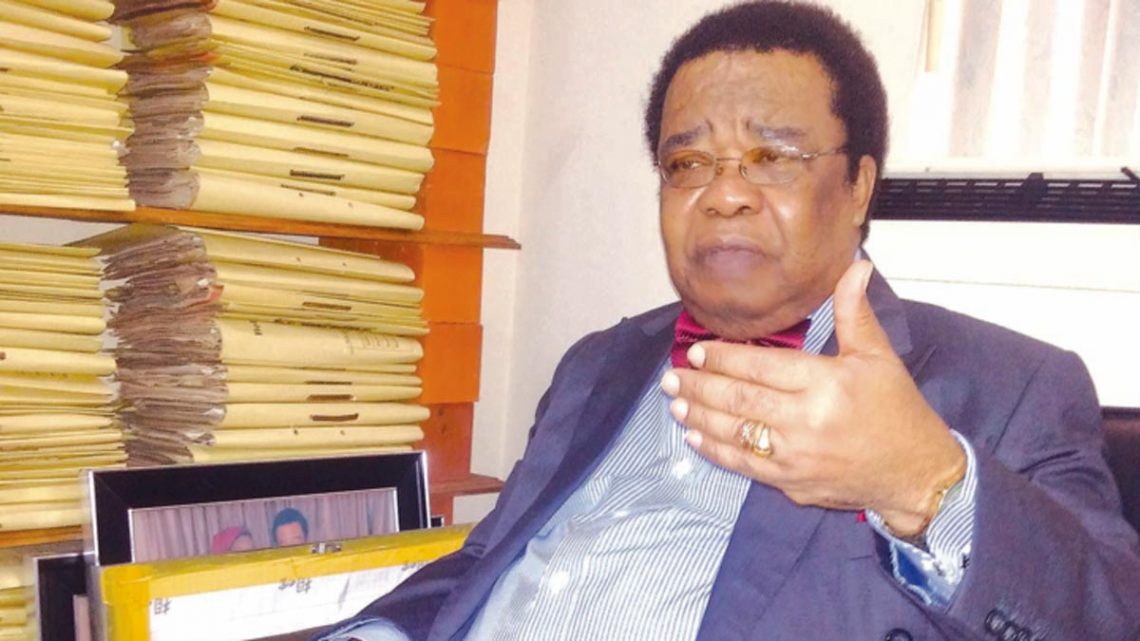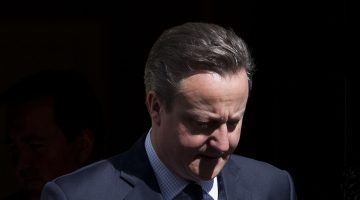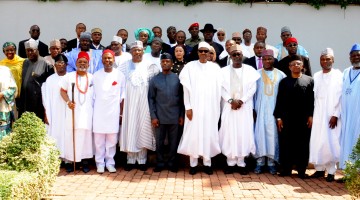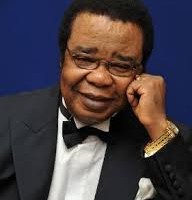What lessons should other countries take from Brexit, which, according to you, was a wrong decision?
It is one act of foolishness by a juvenile Prime Minister. Look at the consequences: this thing may start a war in Northern Ireland all over again.Northern Ireland shares the same border with the Republic of Ireland, which is a member of the European Union (EU).
So, you are now going to have an enforced border dividing the same people. People had thought that joint membership within the EU would have solved a lot of problems, especially in Northern Ireland; now, it is broken open all over again.
Cameron is going down in history as a man whose policies led to the break-up of European Union, and whose policies raised the danger of leading to the break-up of the United Kingdom. He has just thrown a whole several generations of tomorrow into turmoil.
These are young people who are just starting their families newly; they are in a panic, as of today — asking, “is their going to be one Europe?” They believe that if Europe breaks up into several pieces, it is the same issue of war that would arise. Are they going to face war in their time? That is what the youth, the young people in Britain, are confronted with.
The map, I mean the voting pattern, shows very low percentage of participation by youths; how do you react to that?
It is also a pity, a tragedy that the youth did not fully participate in the referendum.Come rain, sunshine and brimstones, the youths would have poured out to vote because this is more about them than the older ones who were voting for the comfort of the past without thinking about the comfort of tomorrow.
How will Brexit specifically affect other regional blocs, especially AU and ECOWAS?
Even though the Organisation of African Unity came into being before the European Economic Community, but in the past several years, the European Union has actually been influencing in a positive way developments in the African Union. First of all, the African Union was even named to copy the European Union, and they’ve been talking about an African Union Bank, they’ve been talking about common currency, they’ve been talking about several things, all helping in a positive way in copying the development in Europe. What is now going to happen?
Morocco is the only country that has walked out of the AU because of the Western Sahara; others now may say, “even if they suspend us (because normally, you suspend the country when there are coups), so what? Britain has just left the EU.” Therefore, there may now be a copycat syndrome affecting development at the African Union level.
I gave a speech at the Ministry of Foreign Affairs about six months ago, and I was optimistic that as Europe moves its progression forward towards European unity, it will have a positive effect on ECOWAS and African Unity. I never thought for a minute that this kind of devastating backwardness or backward development would occur so soon; I didn’t. You will now have a situation where countries that are not happy about decisions by the AU or by ECOWAS will start thinking of getting out.
Nigeria, for instance, has several cases before the ECOWAS Court. Supposing Nigeria is not happy about some of the decisions that would come out of that court, somebody would say, “well, may be it’s time for Nigeria to review its membership.” Before today, people would have said, “What are you talking about? In what part of the world do people get out of things when they are not happy?” Now, as of today, they would say, “but Britain did it; why can’t we do it?” That poses danger for African Unity and for developments and integration at the ECOWAS level.
Now, when we come home — which is probably why I welcomed this interview, because I am very disturbed — we have several self-determination groups operating in Nigeria as manifestations of discontent. We are really going through our own rainy season of discontent (harmattan of discontent if you want to put it that way); and we are hoping that this discontent would be addressed. They won’t pass away.
Don’t forget that we fought a civil war in this country, and people had thought that, after that war, we are not going to have secessionist tendencies or violent manifestations of discontent again. But don’t forget that Ken Saro-Wiwa was hanged; and now, we now have a situation where it is not just the Niger Delta. Even in the North East, you have these manifestations.
Believe me, what Britain did in voting to leave the European Union has energised those self-determination groups in Nigeria; it has just energised them. And if Scotland were to then push its own agenda and leave Britain in two years time, then forget it.
So, I am saying with all due seriousness (I am 74, going to 75; so, I don’t talk flippantly) that since I finished my assignment as the Deputy Chairman of the National Conference, I haven’t come up to the press. I decided to speak out now because I fear for Nigeria. I think we have our window of opportunity to address our fears, to address our grievances and maybe this window of opportunity will only last for another two years, because I foresee Scotland leaving the United Kingdom in another two years. If by then we have not sorted ourselves out in this country, then I fear.
Why do you call this a window of opportunity?
As a Political Scientist, believe me, the only personality, or the only force that can restructure Nigeria has to be from the North. The first restructuring of Nigeria into 12 states was done by Gen. Yakubu Gowon, who came from the North — the North was assured that one of their own wouldn’t deceive them. The second restructuring was made by Murtala Muhammed, my hero; again, from the North, because there is this assertion that the North would accept it. The third exercise was by Gen. Ibrahim Babangida, again from the North, and the last one was by Gen Sani Abacha. So, they’ve all come from the North, and for a very simple reason — that the North is the defender of the status quo and restructuring is going to affect the status quo.
With President Muhammadu Buhari now in charge, if he does his risk assessment properly, then he will come to the conclusion that the challenges facing him as President of this country are more invidious than the challenges of the civil war, in the sense that the disparity in weapons of destruction available to the liberation movement are stronger than weapons available to the Biafra side at that time.
Therefore, he (President Buhari) should come to the conclusion that he has to seize the opportunity to address the fears, address the challenges and come up with a solution that has to be based on consensus. All sides must give and take.
This is what we tried to do at the 2014 National Conference. The outcome was not perfect — nothing done by human can ever be perfect. Even till today, the United States that was formed in 1776 is still work-in-progress, not to talk about Nigeria that was put together in 1914. It cannot be perfect; it has to be work-in-progress and each generation would face that work-in-progress and come up with its own compromise solution, which 50 years down the road, the next generation would have to address and come up with their own.
So, that’s why I am saying, we have our own window of opportunity now. Former President Goodluck Jonathan showed courage in summoning the 2014 National Conference; there was no guarantee that it shouldn’t break-up. I was in the middle of it, and I know what I am talking about. It was a risk, a high-wired risk.
Why do you say so?
Since we tend to think now in terms of six geopolitical zones; even though this is not in the Constitution, any particular zone could have walked out. It was not only the North that threatened to walk out. I know how many meetings held behind the scene, I know how many interventions by the Chairman and the Deputy Chairman behind the scene to make sure that nobody walked out.
The South South was not happy about all the decisions. There was a time the South West wanted me impeached because they felt that I was leaning too much towards the North. The first petition to the Chairman was by the South West against the Deputy Chairman. But at the end of the day, we had over 600 resolutions adopted by consensus — no voting, no dissent. It was by consensus — 600 resolutions. I have all the volumes; they are out there in my library.
At the end of the day, there is the entire report, which forms about 33 volumes or thereabout. The report was adopted by consensus; we didn’t have to put it into voting. And let me let out a secret today; it got to a stage where we printed ballot papers — we were prepared to go down that road.
We went to INEC and collected polling boxes from them and we lined them up before the members to vote if they wanted. When they saw how serious we were, they calmed down and we resorted to what civilised people do — bargain, negotiate, move this way a bit, move that way a bit. We need to move away from seeing Nigerian politics as zero-sum some to multiple-sum; you give a little, I give a little and, at the end, all of us gain.
I appeal to the president to seize this opportunity and learn a lesson from the fantastically calamitous steps that Cameron took that has now led to this; let him learn a lesson from this, let him be on top of the game, and not leave things to chance.
Are you calling for the implementation of the National Conference report, which the president has already said is not going to be discussed?
I wouldn’t use that kind of language — implement or not implement. I know enough now about military mentality to know what they take as challenge, and when you challenge a military man, he would react; so, that’s why I won’t use the word implement or not implement.
Set up a small task force to take a look at all resolutions that have come out of several conferences that he himself said are in the archives. Take a look at them, distill what anybody who means well for this country can distill from them for him to take a look at them; that will be a positive step in the right direction that will mean you are a listening president and you have learnt your lessons from the mistakes of David Cameron. It’s that simple.
There were talks about subjecting the outcome of the National Conference to a referendum; do you suggest that Nigeria should go down that road?
The world has gone past democracy by referendum; we’ve gone way past that; that’s why you have representative government, that’s why you have congress, that’s why you have the parliament. That’s why you have the National Assembly, that’s why you have elected representatives of the people; you surrendered to them.
When you elect a person, you are asking him to “take decisions on my behalf, think on my behalf. I am too busy looking for school fees, I am too busy looking for spare tyres for my car; now, we are paying you a salary to think on our behalf and take a decision on our behalf.”
The sitting National Assembly was supposed to amend the Constitution; that National conference job was not to amend the Constitution, it was meant to address issues, grievances, fears of people across board. We were not to debate on budget; we were not to be distracted by the day-to-day legislation, which the National Assembly is involved in. Our job was specific.
There are issues you can address by ordinary legislation, but then, there are other issues of immense constitutional gravity.I don’t want this interview to be turned into a defence for or against what came out of the National Conference, because it will divert attention to the main issue which is, we have a problem in our hand — the problem of liberation movements and grievances. This Brexit will strengthen their hands.
It is left to the president of the day to say how he would take the initiative, he cannot leave the initiatives to each of the groups to decide how they would react; he cannot leave it to the press; he cannot leave it to the Akinyemis and the professors and see how they would react to it; it is much more than that. It is how Nigerians would cope with this negative stimulus.
Please mark this: there are people in this country who would regard what has just happened in Britain as a positive thing, saying that Nigeria is just like the EU, and so the people should be allowed for self determination. There are Nigerians who think that way. I do not, and that is why I am calling it a negative stimulus.
Given the Brexit and other global events at present, what is your own recommendation of what Nigeria’s foreign policy should be?
I attended a workshop in Abuja last month; I was the chairman. In my chairman’s remark, I said one of the worst things creating problems in Nigeria is office holders who refused to retire gracefully and let the sound of silence from them speak for itself. I have had my turn and now I am back as an observer. Some gracefully refer to me as an elder statesman. I receive it, I embrace it; then, I should behave like one, which is, let the new office holders have their turn unencumbered by me breathing down on their back. So, I much gracefully decline comment on that issue of our foreign policy.
I want all of us — from the president down to the truck pusher — to realise we are on a slippery slope in this country and in Europe. There is something we never spoke about. It is the United States. Next to my alarm is the nightmare of Brexit influencing events in United States with the danger of Donald Trump being elected. That nightmare should keep all of us awake until Americans elect their president.
Therefore, Nigerians should realise that they don’t have a calm sea ahead of them; it is a turbulent ocean ahead of us, and we must stop showing insensitivity to real issues. We must stop.
Politics is allowed; it’s a noble profession — next to prostitution of course — but at times, you need to draw the boundary.The Americans used to talk about bi-partisan foreign policy by saying that politics stops at the coastline, meaning that in the cause of foreign affairs, they are united. So, let me say that when it comes to addressing the real issues troubling Nigeria, politics better stops. And we shall reach out across to each other by any means possible.
I am aware that a proposal has been made on federalism to the president. He should take a good look at that proposal. Everybody is making proposals to help him help us; he is our president, and we want him to succeed, because we want Nigeria to succeed. It’s not because of him as a person; he is an embodiment of Nigeria today and we wish him well, because we wish Nigeria well.
content of guardian Newspaper, 2016


